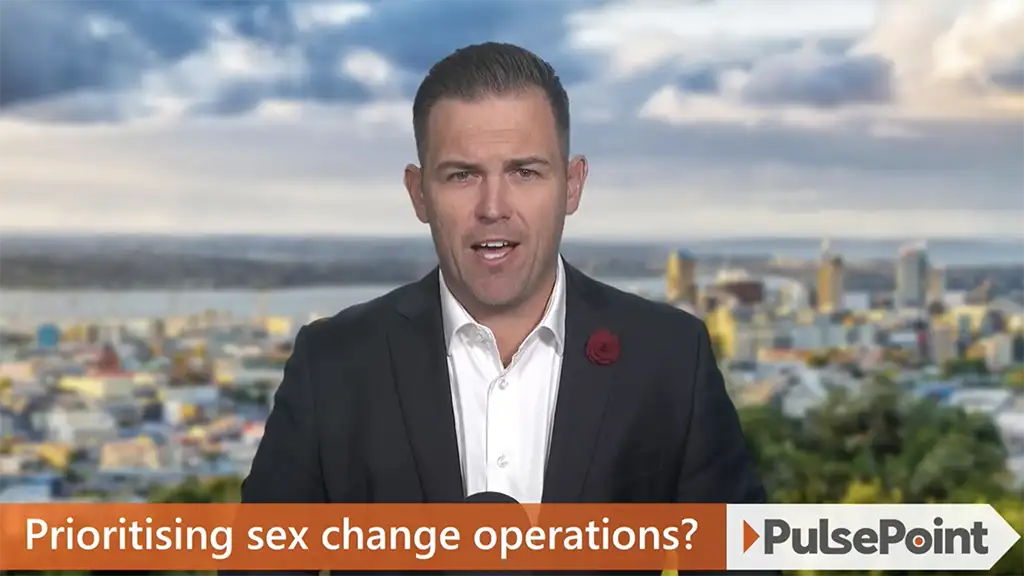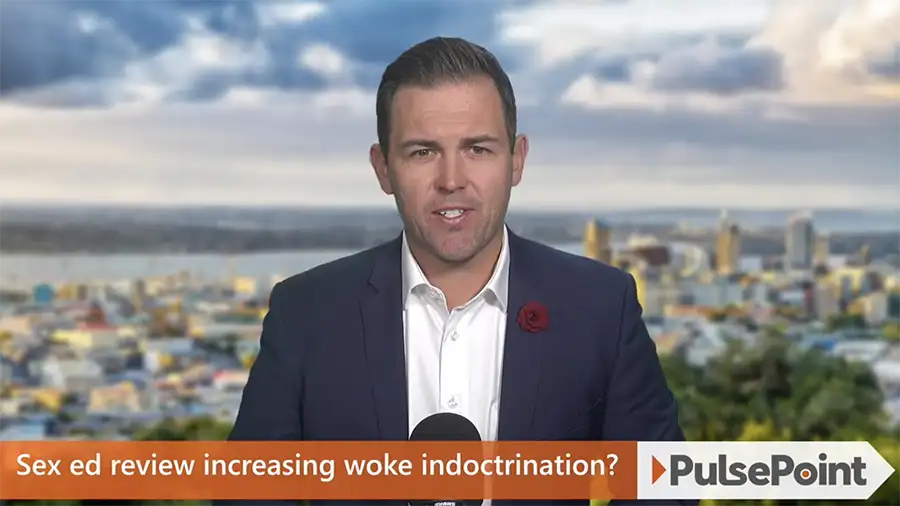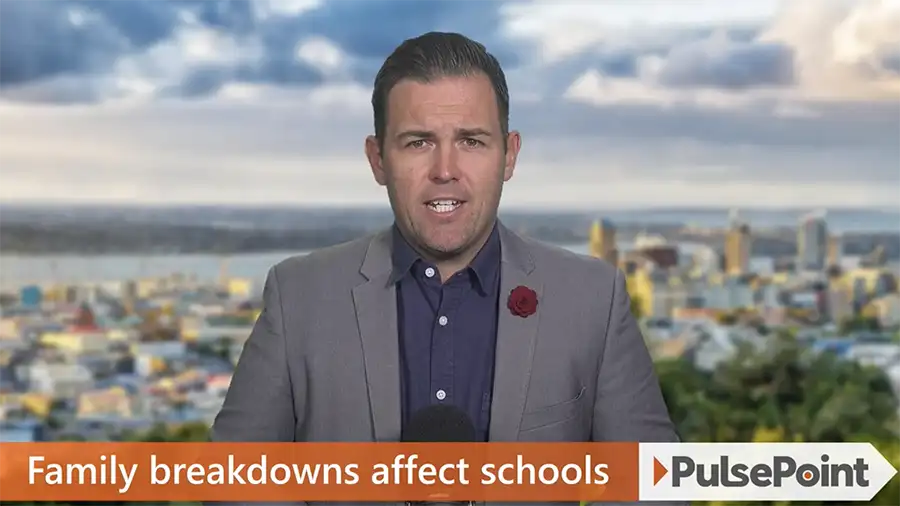Welcome to PulsePoint for 18th July 2024 – the latest media stories and research related to family and society that you need to know about – issues from both New Zealand and overseas that the Family First team have been monitoring and researching over the last week. It’s time to cut through the spin and uncover the real issues.
In this episode of PulsePoint, we’ll update you on these topics:
1. 90% of schools said “no thanks” to Pride Week in Schools this year. 00:58
2. Seven Sharp discussed the issue of drag queens reading LGBT books to children in libraries. 02:17
3. HRC new report on conversion therapy. 05:13
4. Teen’s Pro-Life Anthem Climbs iTunes Country Charts. 07:56
5. Having Gratitude Linked to Lower Risk of Death. 09:37
TRANSCRIPT:
Welcome to PulsePoint – the LATEST media stories AND research related to family and society that YOU need to know about – issues from both New Zealand AND overseas. It’s time to cut through the spin and uncover the REAL issues.
I’m Tumby Stowers.
- Despite heavy promotion in the legacy media and by the Ministry of Education, the number of schools registering for InsideOUT’s Schools’ Pride Week last month fell by almost 20% from last year.
Last year, just 300 schools out of approximately 2,400 schools nationwide registered to observe the week of indoctrination of radical sexuality and gender identity ideology. This year it was even lower – despite the Education Ministry’s subtle pressure. Just 250 schools – approximately 10% of all schools – registered.
That means that 90% of schools focused on what we believe schools are supposed to focus on – education, not indoctrination. That’s an INCREASE of schools saying NO to this agenda.
InsideOUT blamed “a hostile political climate or rising bigotry and disinformation” for the significant drop.
But why did the numbers drop?
It dropped because parents, grandparents and community leaders have pushed back on the indoctrination of our children by radical activists who want to sexualise and confuse our children. There is also growing and undeniable scientific evidence of the harms of the ideology.
The science is finally winning – and not a moment too soon.
- Last Thursday, a segment on State broadcaster TVNZ’s Seven Sharp discussed the issue of drag queens reading LGBT books to children in libraries.
So one of the drag performers was interviewed by host Hilary Barry.
You can watch a full analysis of the Seven Sharp segment on our website under McBLOG – but there were two specific parts of the programme that we wanted to highlight to you Today.
Firstly, Seven Sharp doesn’t want to acknowledge people who believe that you’re born male, or female and you can’t choose your sex, or that men can’t get pregnant, or that drag queens are entertainment for adults only. It’s all the fault of one group.
VIDEO – seven sharp drag queens 1
Christian fundamentalists. Apparently.
But if you look at the online commentary and public polling, there’s a huge number of concerned parents, educators and community leaders who don’t agree with drag queens being role modelled before children or the indoctrination of sexuality and gender ideology.
Secondly, there’s an interesting book shown in this clip, have a watch:
VIDEO – seven sharp drag queens 8
The book Granddad’s Pride which appeared in that clip includes pride parades and leather fetish gear.Apparently, that is acceptable to our state broadcaster – especially for preschoolers.
Ironically, Seven Sharp didn’t get the drag queen to read out of this book or show that picture.
Seven Sharp also contacted Family First for comment just 5 hours before the broadcast, even though the segment had clearly been pre-recorded, so they had plenty of time to organise an interview. But it seems they weren’t interested in an interview. So, Family First sent this message back:
We inform parents as to what’s behind this (why don’t drag queens seem as keen to read books at retirement homes?) and encourage parents to communicate their concerns to the libraries hosting such events. However, it is up to parents. We just want to provide information to them, so they know the background and agenda. If they still want to take their children, that’s their choice. We just discourage it.
Fortunately, most kiwi families now know exactly what’s going on and that’s why these readings in libraries have very small groups attending. And that’s a great thing, cause parents are now aware.
- 3. A new report has been released by the Human Rights Commission entitled Conversion Practices Insights Report
IMAGE – conversion practices HRC ff media release
It’s important to note that the $2.2m taxpayer-funded complaints centre set up by the Human Rights Commission for receiving complaints about ‘conversion therapy’ has struggled to obtain any formal complaints about the use of ‘conversion therapy’ in the two years since the new law was passed,
Now once again, you will find a fuller analysis of this report on our website under McBLOG.
In his analysis, Bob McCoskrie did a word search of this 102 page document
(not found) Church appeared 49 times and Christian – 46 times
Marriage – 31
Mosque – 0
Muslim – 1
Hindu – Buddhist – Mormon – a couple of times each
But it’s this admission by the Commission that should raise red flags for everyone
We received a small amount of feedback from those supportive of conversion practices as a way to uphold what they perceived to be the ‘rights’ of families and religious communities to discipline or try to change those in their care. We have not given space to those views in this report …
The Human Rights Commission don’t want to publicise any contra view. It appears that they only want “human rights for those they agree with”.
The report has recommendations for the church – saying
Engage in research around inclusive and affirming interpretations of religious/spiritual teachings.. Commence a review process of reckoning with religious texts and teachings that do not affirm Rainbow people… inclusive interpretations with an open mind.
And then
(not found) The introduction of Christianity in Aotearoa by European missionaries in the 19th century brought with it concepts of binary gender, monogamy, and heteronormativity, which influenced and altered attitudes towards sexual orientation and gender that largely remain today…
Under community, they tell churches.
Consider having non-religious events. Also consider celebrating events that may uplift your Rainbow community like Pride Month.
Consider placing a small Pride flag or poster with a Rainbow-affirming message in a common area.
Review the layout of your bathrooms…
We believe all New Zealanders should be protected from coercive, abusive, or involuntary psychological or spiritual practices. However, participation in psychological assessments, counselling sessions, prayer meetings and other therapeutic practices is almost always an expression of voluntary behaviour and personal freedom.
Ironically, while gender and sexuality are supposedly ‘fluid’, activists want the law to stipulate that it can only go in the direction they approve. Conversion therapy is still legal in New Zealand. It’s practiced in schools by groups such as InsideOut and Rainbow Youth.
- Pro-life anthem song “I was gonna be” sung by 18-year-old Rachel Holt’s has reached the top 5 on iTunes’ chart for country musicless than three weeks after its release.
By 4 July, the song was within the top 10 country digital sales, and just inside the top 20 digital sales.
The writer of the song Chris Wallin, the Nashville hitmaker behind Country chart-toppers for superstars stated, “I started writing this song for myself. I didn’t think anyone would have the courage to sing this,”
Soon after Wallin and Holt met and Holt heard Wallin’s song, she offered to sing it.
The song he wrote is from a point of view of a baby that never had a chance to be born.
Holt’s and Wallin’s, “I Was Gonna Be” is a powerful and relevant message for pro-choice activists demanding the right to turn the womb into a tomb.
This is a solemn, softly sung, pro-life protest in defence of the pre-born.
- And finally, a new study shows that grateful people actually live longer. The study examined over 49,000 older women in the nursing profession, allegedly the first study of its kind.
The study found that in comparison to women with lower gratitude levels, the most grateful tended to be younger, have a husband or partner, and be involved in social and religious organisations.
The average age of nurses who took part in the study was 79, and by the end of 2019, 4,068 of them had died.
Looking at those who died, higher gratitude scores were associated with a 29% reduced risk for death overall.
When controlling for a history of heart disease, stroke, cancer, and diabetes, gratitude was still associated with a 27% reduced risk of death. and a 21% reduced risk after controlling for lifestyle habits like smoking, exercise, drinking, and eating a healthy diet.
The study would suggest that keeping a grateful heart, taking time to pray and prioritising time with family and friends could literally save your life.
Always take time to reflect as there is always something or someone to be grateful for, no matter how hard life can get.
And THAT’S the latest episode of PulsePoint. You can check out ALL these stories AND MORE on our website familyfirst.nz. We’ll keep watching the news… so that you don’t have to.
See you next time.



